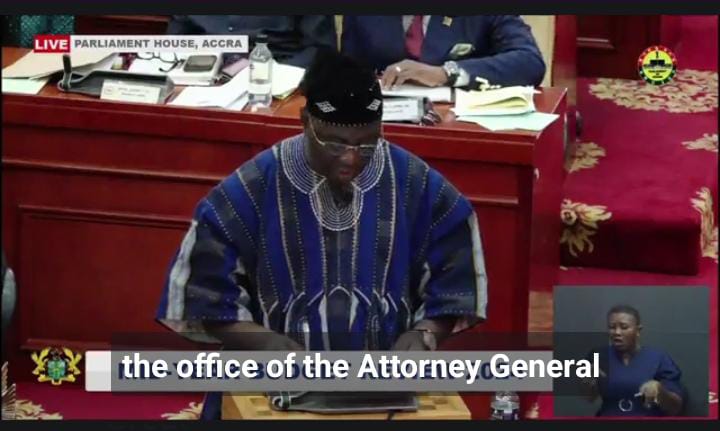adverts
2024 Mid-Year Budget Review: Government pays GHC12 billion to bondholders to stabilise the economy and restor investor confidence—Finance Minister
In a significant move to stabilise Ghana’s economy and restore investor confidence, the government has paid GHS12 billion to bondholders under the Domestic Debt Exchange Programme. This announcement was made by Finance Minister Dr. Mohammed Amin Adam during the mid-year budget review presented to Parliament on Tuesday, July 23, 2024.
Dr. Amin Adam stressed the government’s dedication to fulfilling its financial obligations and ensuring economic stability. “The payment of GHS12 billion to bondholders marks a critical step in our efforts to restore confidence in the financial markets and stabilise the economy. This payment is a testament to our commitment to fiscal discipline and prudent financial management,” stated Dr. Amin Adam.
The Finance Minister detailed how this payment aligns with the broader strategy of economic recovery and growth. The Domestic Debt Exchange Programme, introduced to manage and restructure the country’s debt, has been pivotal in achieving these goals. “Through this programme, we have not only managed to honour our commitments to bondholders but also created a more sustainable debt profile for the nation,” Dr. Amin Adam explained.
adverts
This financial manoeuvre is part of a broader set of measures aimed at improving the macroeconomic environment. Dr. Amin Adam highlighted that the government has also made significant strides in stabilising inflation and the exchange rate. “Since 2022, inflation has dropped by 31 percentage points, and the exchange rate has shown signs of stabilization. These are critical indicators of our economic resilience and recovery,” he noted.
Additionally, Dr. Amin Adam announced that Ghana’s international reserves have increased to 3.1 months of import cover, providing a stronger buffer against external shocks. This improvement is attributed to effective fiscal management and strategic negotiations with international partners, including the International Monetary Fund (IMF) and the Paris Club.
The mid-year budget review also underscored the government’s substantial investments in social programmes and infrastructure. Over GHS5.4 billion has been disbursed for various social programmes, including the Livelihood Empowerment Against Poverty (LEAP) initiative, the School Feeding Programme, and the National Health Insurance Scheme (NHIS). These programmes are essential in providing support to the most vulnerable segments of society.
In addition, nearly GHS10 billion has been invested in the road sector since January 2024. Key projects include the expansion of the Komfo Anokye Teaching Hospital (KATH), the rehabilitation of the Ofankor-Nsawam Road, and ongoing investments in water and sanitation infrastructure.
Education remains a priority for the government, with substantial funding allocated to the Free SHS programme. In the first half of 2024, GHS1.5 billion was invested in the Free SHS programme, ensuring that the youth have access to quality education. “Investing in education is investing in the future of our nation. We are committed to building a skilled and educated workforce,” Dr. Amin Adam stated.
The government has also launched a GHS8.2 billion programme to boost small and medium-sized enterprises (SMEs), recognising their critical role in job creation and economic development. This initiative aims to provide financial support and resources to local businesses, fostering innovation and entrepreneurship.
Dr. Amin Adam also discussed the progress made in the digitalization agenda, with a GHS135 million investment in the National Identification Programme. This initiative is crucial for improving governance and service delivery, ensuring that every Ghanaian can access essential services efficiently.
Overall, the mid-year budget review highlights the government’s comprehensive approach to economic stabilisation, growth, and development, reflecting a strong commitment to improving the livelihoods of all Ghanaians.


